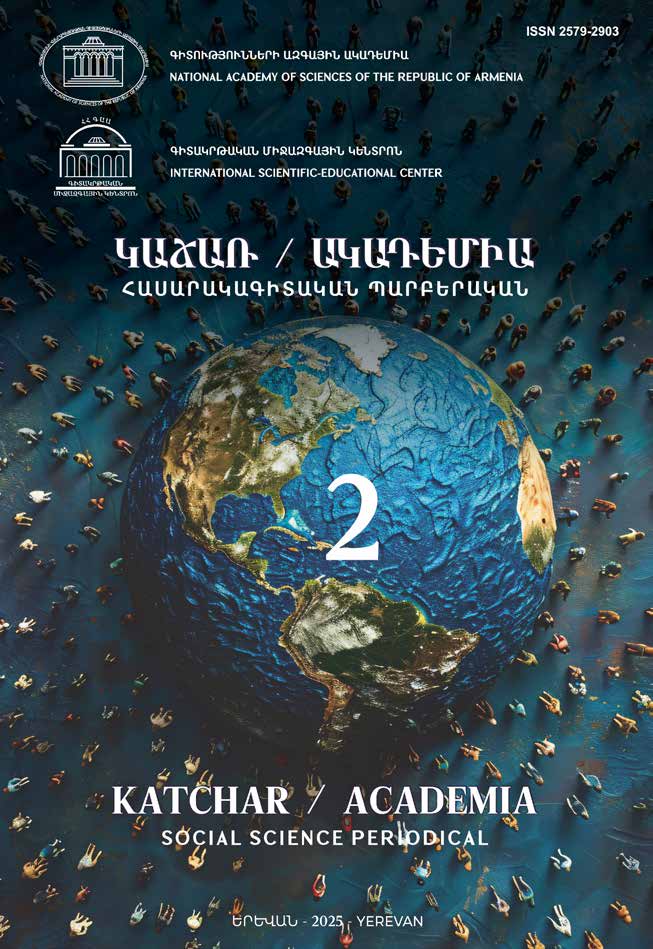SMALL STATES IN MODERN INTERNATIONAL MULTILATERAL RELATIONS
DOI:
https://doi.org/10.54503/2579-2903-2025.2-201Keywords:
small state, superpower, territory, population, sovereignty, economy, international organization, region, security, multilateral format, foreign relations, cooperationAbstract
In modern international relations, states adopt strategies to confront security and other challenges. The strategies they choose, passive, defensive, or active, depend not only on resources but also on the ability of the political elite to correctly assess the international environment and find a balance between security, sovereignty, and development.
Given the disproportionate distribution of power in the field of international relations, small states are often compelled to avoid forceful confrontations and instead utilize diplomatic and multilateral cooperation tools. The international involvement of small states today is predominant, especially within the framework of the UN and other global and regional multilateral platforms, where the majority of member states are small states. These states can combine efforts and act as a collective voice, often promoting global agendas such as the fight against climate change, the goal of sustainable development, the protection of human rights, and the strengthening of peace.
Small states, despite their limitations, can become influential and proactive actors, provided they manage their internal resources wisely and develop a stable and flexible foreign policy. Their strength is not limited to material factors, but is based on strategic orientation, ideological cohesion, effective work with international partners, and institutional cooperation.
In international relations, especially in a multilateral format, the strength of a small state is measured not only by its size but also by its ability to act intelligently, persistently, flexibly, and purposefully. These states can act not only as consumers of security but also as peacemakers, disseminators of international norms, and bearers of joint actions to solve global challenges. Small states rely heavily on multilateral diplomacy, legal mechanisms, and niche diplomacy, which allow them to increase their political weight in international organizations without the resources of force.

Downloads
Published
How to Cite
Issue
Section
License
Copyright (c) 2025 KATCHAR / ACADEMIA. SOCIAL SCIENCE PERIODICAL

This work is licensed under a Creative Commons Attribution-NonCommercial-NoDerivatives 4.0 International License.



